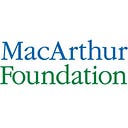Making Chicago Media More Inclusive and Diverse
March 7, 2019
Chicago Stories
Jack Fuller Legacy Initiative grantees, Free Spirit Media, City Bureau, and Chicago Public Media’s Vocalo support more inclusive narratives by training and equipping people to tell their own stories.
The air crackled with anticipation as more than a hundred young people and community members filed into a downtown theater on a snowy January afternoon. But it was not for the latest Hollywood thriller or superhero fantasy.
The aspiring journalists and media producers were there to support the work of peers — two films made by people of color, like them. The screening was hosted by Free Spirit Media, a nonprofit that provides hands-on training in journalism and media making to teens and young adults from Chicago’s West and South sides.
Whether a video on the mayoral election, a multimedia story about fixing food deserts, or a film about overcoming peer pressure, the mission is encouraging and equipping young people from communities of color to tell their own stories.
“I can really use those skills to impact my community, because we have something to say,” said Patricia Joyner, a high school senior from Woodlawn who now has training in media production.
Free Spirit Media is one of a handful of grassroots organizations — led by a younger generation of leaders — that is empowering a new wave of young people to make the city’s media more inclusive, diverse, and democratic.
These nonprofits are inventing and implementing new models — including workshops, partnerships, crowdsourcing, fellowships, and alternative platforms — to amplify voices of residents who see an often incomplete and inaccurate representation of their communities in traditional media.
One of them, City Bureau, is a journalism lab that, among other programs, trains residents on how to track government actions and collaborate with professional journalists. Another is Vocalo radio, the “urban alternative” wing of Chicago Public Media, which employs a music and interview platform to amplify stories of diverse communities, and the recently established Race, Class, and Communities desk at WBEZ.
Free Spirit Media, City Bureau, and Vocalo/WBEZ receive funding from the MacArthur Foundation as part of the Jack Fuller Legacy Initiative, launched in 2018 to strengthen community journalism in Chicago. In February of 2019, MacArthur partnered with the Field Foundation to launch the Media & Storytelling program, which aims to expand the reporting and storytelling capacity of a more diverse set of Chicago news outlets, reporters, and media makers.
Opening Doors
While breaking a big story is a thrill, the priority for the community-focused groups is bringing more perspectives to the media landscape. The leaders of these organizations say they are laser-focused on looking beyond mainstream coverage of crime, gangs, and poverty and creating opportunities for young people to show leadership and offer a fuller, more nuanced portrait of their neighborhoods.
“We want to open doors,” said Jeff McCarter, Free Spirit Media’s founder and executive director, who lives in North Lawndale. “Our society is hungry for change that comes from authentic access and opportunity.”
A former Emmy-winning network producer, McCarter launched Free Spirit Media in 2001 with a shoestring budget and three volunteers. Today, the organization has a $2.4 million budget and a staff of 25.
Some 7,000 young people have participated in its programming, which includes an experimental learning newsroom called “The Real Chi” and a separate news training program for teenagers.
Joyner, who attends Gary Comer College Prep, covered the 2017 Obama Foundation summit in Chicago for Free Spirit Media News. Next up: traveling this summer to Rwanda with a group called the Peace Exchange, about which Free Spirit Media will be producing a new documentary.
At the January film screening, the program included two quiet tales: one was an autobiographical film titled “Fuzzy Legs” about a Pakistani-American girl who copes with cultural differences in middle school. The other was produced by five Chicago teens who traveled to India to bring peacemaking lessons back to their neighborhoods.
“If you don’t tell your own story, someone else will tell it for you,” said Amber Eswani, 24, who created the cultural film “Fuzzy Legs.”
New Type of Journalism
Across town, an overflowing crowd convened at the Harold Washington Library Center in January to learn about City Bureau’s Documenters project.
No news outlet can send reporters to every school board or zoning meeting — and that means under-resourced ZIP codes often get short-changed. So City Bureau recruits, trains, and pays residents to attend, take notes, and contribute to a communal pool of reporting on city affairs.
The network of documenters ensures an accurate record of proceedings and therefore more transparency and government accountability. Participants use an app to sign up for assignments.
Typically, the raw content is posted online as a public resource. But an audio or video clip may find its way into a larger story, whether about police misconduct, negligent landlords, or weed-choked playgrounds. City Bureau stories have appeared in a variety of publications, from Chicago magazine to The Atlantic.
“If you take this raw data…and you collaborate with other journalists, what you have is a new type of journalism,” said Darryl Holliday, one of four journalists who founded City Bureau in 2015.
City Bureau programs include 10-week reporting fellowships and full-year residencies. It hosts a weekly forum called “Public Newsroom,” where reporters and residents discuss local issues.
“People are always saying that Chicago is so violent, but we can change the narrative,” Joyner said. “We can offer both sides — the positive and the negative — to give you a different perspective and a clearer picture.”
MacArthur has provided $2.4 million in 2018 to support Free Spirit Media, City Bureau, Chicago Public Media’s Vocalo, and the Field Foundation.
This post was first published on the MacArthur Foundation website.
